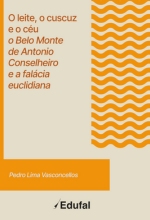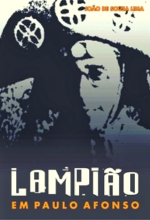Abstract: In a nutshell, the book “Um boi Zepelim enfeitiçado” by José Adeilson dos Santos sheds light on the cultural significance of vaquejada in the Northeast in the 1950s. Some have criticized the work for romanticizing the historical context, omitting capitalist progress, and idealizing traditional masculinity. Keywords: Vaquejada, Northeastern culture, and historical romanticization. The Histories […]
Abstract: The editorial “Music in Brazil: texts and contexts” by Luciana Requião highlights the progress of music studies as an interdisciplinary field that integrates political, economic, social and cultural aspects. The dossier reviews nine recent academic works that explore Brazilian music in its complex social relations and collective processes. Keywords: interdisciplinarity, Brazilian music, and cultural
Music in Brazil: Texts and Contexts | Luciana Requião (UFF) Read More »
Abstract: In Critical composers of Brazilian popular music: history, education and culture, Marcos Raddi deals with music critics. Drawing on various documentary and bibliographical sources, the author’s argument gains strength from an interview with Marcos Diniz, of Trio Calafrio, whose members are the authors of many of the sambas “heard around”. A. Gramsci, R. Williams
Abstract: Cachê Sangrento: uma etnografia do trabalho musical em Aracaju by João Luís Meneses, published in 2022, examines the musical profession in Aracaju, particularly in bars and private parties. Meneses criticizes the inadequate representation of musicians by public institutions and advocates for better working conditions. Keywords: ethnomusicology, musical work, and working conditions. Bloody Fee: An
Abstract: “Aspectos sobre a valsa no Rio de Janeiro no longo do século XIX: de folhetins, música de salão e serestas”, by Martha Tupinambá de Ulhoa, explores the waltz’s integration into Rio’s musical culture, examining its social and economic aspects. The work, well-structured and rich in sources, is essential for music history scholars. It addresses
Summary: Sambistas e Sociedade: Um ensaio etnomusicológico, by Samuel Araújo, rearticulates criticisms of the concept of music and uses samba to understand various dimensions of Brazilian society. Araújo proposes a new dialog about music and deepens the concept of acoustic work, receiving praise for his methodological rigor and multidisciplinary approach. Keywords: Ethnomusicology, samba, and Brazilian
Abstract: O Violão na corte imperial, by Marcia Taborda offers a compelling analysis of the guitar’s role in 19th-century Rio de Janeiro, exploring its integration into the social and economic fabric of the city. This well-structured, source-rich work is an invaluable resource for scholars of musical history. Keywords: History of the guitar, Brazilian music, and
Abstract: Terra Trio [uma família musical com os pés na terra], by Ricardo Schott, celebrates the Terra Trio, describing their journey from 1966 to the 2000s. The work, rich in interviews and documentation, details the group’s performances and cultural influence, including partnerships with Maria Bethânia, has an engaging narrative and detailed context, although it does
Abstract: “Entre o lundu, aria e a aleluia: música, teatro e história nas comédias de Luiz Carlos Martins Penna (1833-1846)”, by Luiz Costa-Lima Neto, offers an insightful analysis of the intersection of music, theater, and history in the 19th century. Dense in content, the work is praised for its meticulous research. Keywords: Luis Carlos Martins
Abstract: O Fole Roncou! [A history of Forró] by Carlos Marcelo Carvalho and Rosualdo Rodrigues aims to trace the history of forró, highlighting iconic figures such as Luiz Gonzaga. The authors are praised for their detailed research and engaging narrative.. Keywords: Forró, baião, and Brazilian music. O fole roncou! [uma história do Forró] is a
Abstract: As origens da canção urbana by José Ramos Tinhorão offers a fascinating exploration of the evolution of song in urban centers, drawing upon a wealth of diverse sources. While it provides valuable insights into the social and economic influences on music, some have critiqued Tinhorão’s work for its somewhat dense language and occasionally ambiguous
Abstract: O leite, cuscuz e o céu: o Belo Monte de Antônio Conselheiro e a falácia euclidiana, by Pedro Lima Vasconcellos, critiques Euclides da Cunha’s interpretation of Canudos, debunking the notion of millenarianism and apocalypse associated with Belo Monte. The work revisits the social and religious experience of Canudos, highlighting its complexity and challenging simplistic views.
Abstract: Lampião em Paulo Afonso, by João de Souza Lima, is a historical investigation into Lampião’s incursions into Paulo Afonso, Bahia. Despite the inclusion of oral testimonies, the work is criticized for its fragmented structure and the insertion of themes outside the main focus, which compromises the clarity of the objective of narrating Lampião’s wanderings.
Abstract: In her book Thieves of the Republic: Corruption, Morality, and Greed in Brazil, 16th-18th Centuries, Adriana Romeiro aims to understand corruption in colonial Brazil. To this end, she employs a wide variety of sources to explore the relationships between money, government, and corruption. The work has been praised for its depth and criticized for












